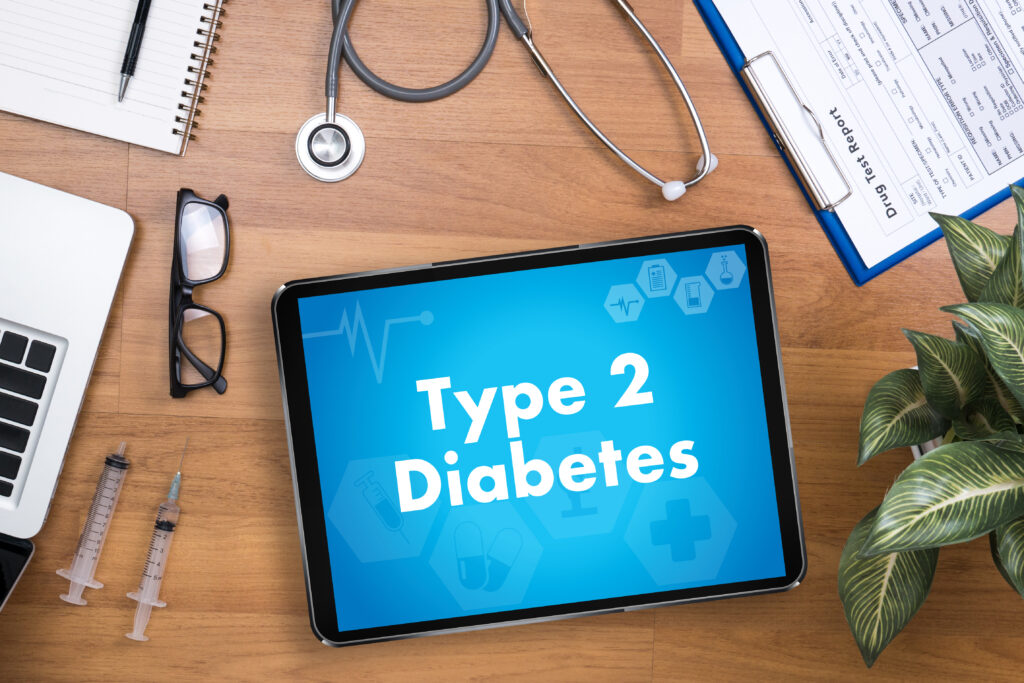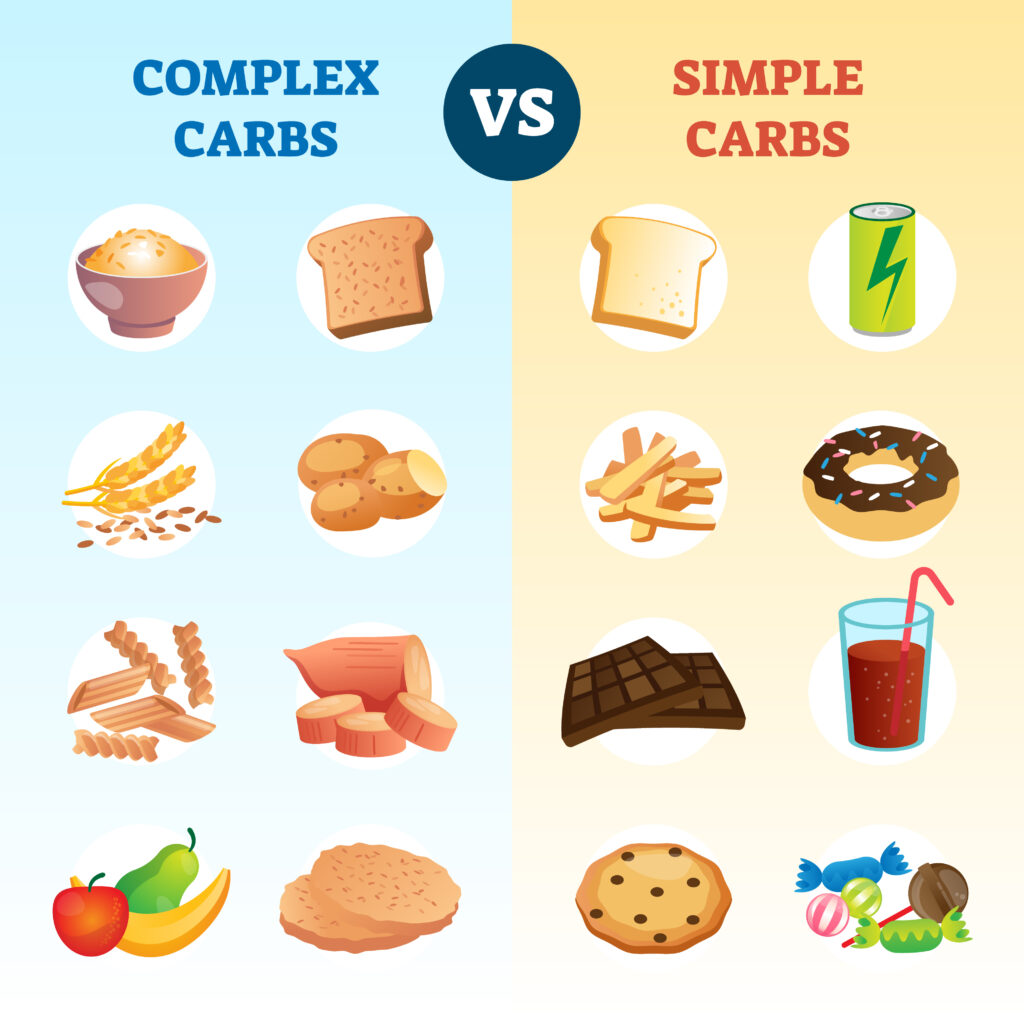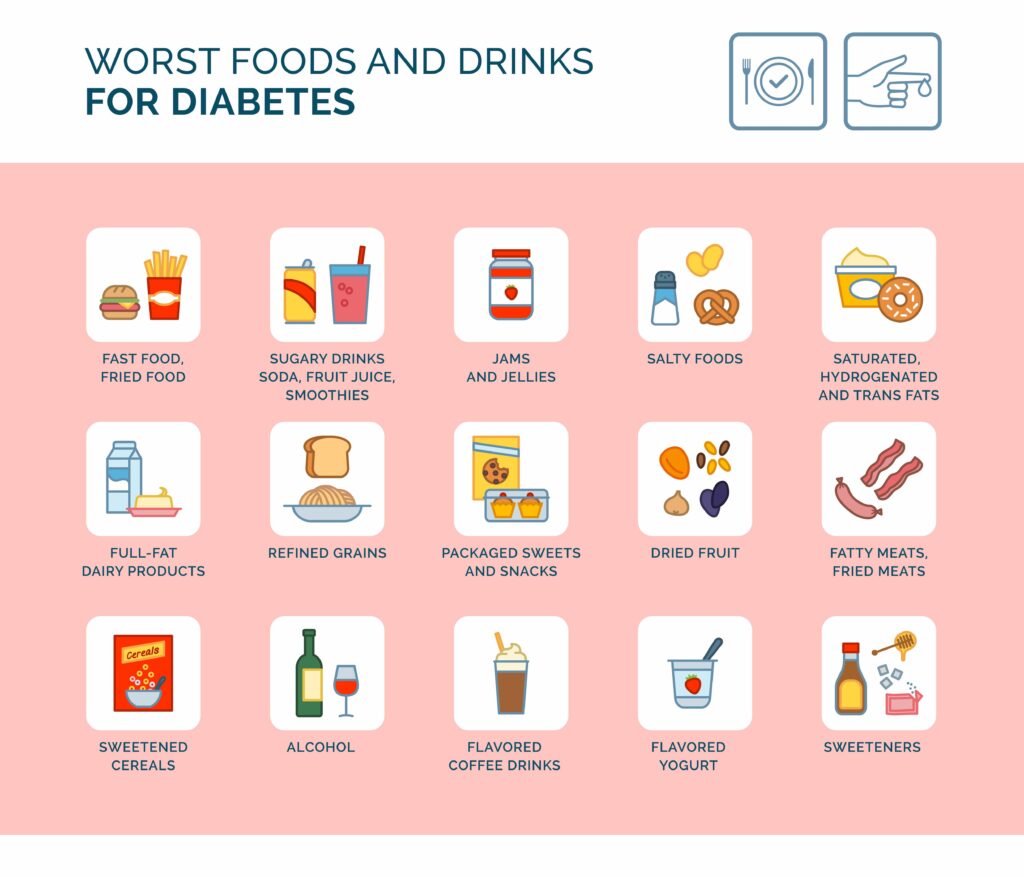Let’s debunk one of the biggest myths about type 2 diabetes. Eating too much sugar or carbs does NOT cause type 2 diabetes.

Type 2 diabetes happens when you lose the ability to control the glucose coming into your blood when eating carbohydrates. So…for people with type 2 diabetes, are carbs the enemy? No. Not only is it nearly impossible to cut out all carbs, but it’s also not healthy.
What Are Carbs?
Carbohydrates are one of three macronutrients that make up food. The others are protein and fat. Carbs are your body’s primary energy source because they are digested faster than protein and fat. Carbs have the greatest effect on raising blood sugar levels which is why people with type 2 diabetes need to know about them.
Our body breaks down carbs into sugar, which enters the bloodstream. This happens with all digestible carbs, including refined sources like chips and cookies as well as whole, unprocessed sources like fruits and vegetables. When people with diabetes eat foods high in carbs, their blood sugar levels can surge. High carb intake typically requires high doses of insulin or other diabetes medication to manage blood sugar.

“Carbohydrates provide energy to your body. But not all carbohydrates are created equal. The food you put in your body is energy for your powerplant. If you pit in poor sources of nutrition, then your powerplant will not function properly,” says Fred Sesti, ANP-BC with West Tennessee Medical Group, Thomsen Farms. “For people with diabetes, choosing whole, unprocessed carbohydrates over refined options and simple sugars is key.”
Diets rich in vegetables, fruit, whole grains, legumes, nuts, and dairy are all cornerstones of a healthful diet in diabetes management and are all sources of carbohydrates. “
Types of Carbs

There are various types of carbs, and they can be divided into two main categories: simple and complex carbohydrates.
- Simple carbohydrates, also known as simple sugars, include all sorts of foods made from a single or double sugar (monosaccharide or disaccharide). Monosaccharides include glucose (the primary source of energy for the brain) and fructose (found in fruit). In contrast, disaccharides include lactose (found in milk and dairy), maltose (found in molasses) and sucrose (table sugar). Due to their simple form, your body can digest them quickly.
- Complex carbohydrates, which include starches and fiber, contain at least three sugar molecules. Because of this, your body takes more time to break down starches, whereas fiber can’t be digested but also slows down digestion. Due to their slower breakdown, complex carbs don’t cause the same sugar spikes as simple ones. Starch is found in starchy vegetables like corn and potatoes, legumes like beans and lentils, and grains like white and brown rice. Fiber is present in fruits, starchy and non-starchy vegetables, legumes and whole grains.
“The recommended amount of carbohydrates differs for everyone, and depends on factors like how much you exercise, body size, age, and sex’” said Sesti. “Blood sugar goals and medication also affect the right amount of carbs your body needs.”
Counting your carbs will help ensure that you stay within the range that’s best for you. There’s no one-size-fits-all recommendation for how many carbs people with diabetes should eat. The American Diabetes Association (ADA) promotes an individualized approach in which your ideal carb intake should consider your dietary preferences and metabolic goals.

How Many Carbs in a Day?
Figuring out how many carbs to eat requires some testing and evaluating to find out what works best for you. To determine ideal carb intake, measure your blood sugar with a blood glucose meter before a meal and again one to two hours after eating. When tracking carb intake, experts sometimes recommend focusing on net carbs instead of the total amount of carbs you eat. Net carbs are total grams of carbs minus grams of fiber. The fewer carbs you consume, the less your blood sugar will rise and the less insulin or other diabetes medication you’ll require to stay within a healthy range.
Understanding how carbs fit into a balanced diet makes it easier to keep your blood sugar in a healthy range. Carbs are needed for overall good health, so you need to manage blood sugar through diet, exercise and sometimes medication.
West Tennessee Medical Group has providers across the area who can provide strategies and tools to help you manage your blood glucose levels in a healthy range. To schedule an appointment with a provider near you, click here.
